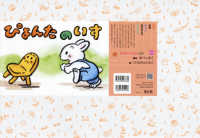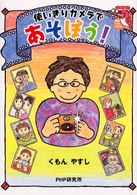Full Description
As democracy faces increasing struggles around the globe, there has never been a more important time to talk about civic education and the core democratic purposes of schooling. What Kind of Citizen? asks readers to imagine the society they would like to live in and then shows how schools can make that vision a reality. This updated edition responds to the many challenges that have occurred since this book was first published, such as a global pandemic, social justice protests, a rise in autocratic leaders, anti-woke laws, and more. Westheimer brings his now-classic text up to date with groundbreaking analyses of current policies, including those in Florida, Texas, and Arizona; standardized testing; prohibitions on teaching about race and racism; plus a new section on teacher education. There are many ways to teach children and young adults to engage critically with their world, but instead teachers are forced to test-prep for a narrow set of academic subjects. This book shows readers how schools can get back on track by creating more engaging, more democratic learning.
Book Features:
A comprehensive look at why schools should be at the forefront of public engagement and how we can make that happen.
A framework that has been used in 67 countries to help teachers and school reformers structure educational programs that strengthen democratic societies.
Research-based guidance for aligning school goals with what parents, children, and teachers actually care about.
Accessible and engaging discussions gleaned through consultations with thousands of school teachers and civic leaders.
Empirical research from one of the most influential frameworks for citizenship and democratic education, "Three Kinds of Citizens," which emerged from a collaboration between the author and Dr. Joseph Kahne.
Contents
Contents (Tentative)Foreword Gloria Ladson Billings
Preface to the Second Edition
Introduction
1. Changing the Narrative of School
The Script in Place
What Archeem Taught Me About Teaching2. No Child Left Thinking
Teaching Questioning—Essential for Schools in Democratic Societies
The Attack on Critical Thinking
Not Just Race, Any Contested Material3. No Teacher Left Teaching
Standardization: A Solution in Search of a Problem
Teacher Education in the Age of Standards and Accountability
De-Professionalization and the New Hypocrisy4. How Did This Happen?
What Gets Tested Gets Taught
The Test Scores That Ate Humanity
Reclaiming the Profession: Teacher Professionalism and Democratic Thinking5. What Kind of Citizen?
Three Kinds of Citizens
An Interlude for Reflection
The Many Faces of "Good" Citizenship6. Personally Responsible Citizens
Why Personal Responsibility Is Not Enough
Are Evaluations Asking the Wrong Questions?7. Participatory and Social Justice-Oriented Citizens
Participatory Citizens: The Madison County Youth Service League
Justice-Oriented Citizens: Bayside Students for Justice
The Importance of Recognizing Different Conceptions of Citizenship
The Influence of Community Context
Pursuing Dual Goals8. Thinking, Engaged Citizens
Connecting Learning to Social and Civic Goals
Scaling Up: Regional and National Programs
Scaling Down: Thinking About a Thinking Curriculum
Engaging with the Community9. Six Myths About Education
Myth 1. National Standards Ensure Quality Education
Myth 2. Dissent Should Be Medicated
Myth 3. The Only Way to Teach Democratic Thinking Is to Make the Entire School Democratic
Myth 4. When It Comes to Community-Based Experiences, Knowledge Must Always Precede Action (You Have to Know Stuff Before You Do Stuff)
Myth 5. Teachers Who Care About Whether Students Can Think for Themselves Don't Care About Facts or Basic Skills
Myth 6. Community-Based Experiences Must Be Successful10. What Kind of School?
Acknowledgments
Notes
Index
About the Author








